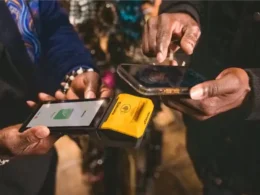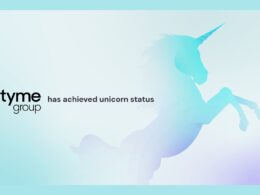The develoPPP Ventures programme, backed by Germany’s Federal Ministry for Economic Cooperation and Development (BMZ), has opened applications for its latest funding round targeting startups across Nigeria, South Africa, Kenya, Rwanda, Tanzania, Ghana, and Côte d’Ivoire.
The program offers €100,000 in non-dilutive funding—capital that doesn’t require giving up equity—but with a significant catch: startups must first secure matching investment from external sources to unlock the grant.
Applications remain open until December 31, 2025, giving founders over a year to apply, though competition for spots will likely intensify as the deadline approaches.
The Matching-Funds Model: Feature or Bug?
The program’s structure is deliberately designed around a “matching-funds” requirement that will prove either brilliant or frustrating depending on your perspective.
Here’s how it works: If your startup is selected, you receive €100,000—but only after you’ve raised an equivalent €100,000 from other investors. The program frames this as “effectively doubling the capital injection without further equity dilution.”
For founders, this creates an interesting dynamic. On one hand, €100,000 in non-dilutive capital is genuinely valuable—it’s cash that doesn’t come with the valuation negotiations, board seats, and control provisions typical of equity rounds. For bootstrapped or capital-efficient startups, this could be transformative.
On the other hand, if you can already raise €100,000 from external investors, you’re presumably a relatively de-risked investment. The matching requirement means the program primarily benefits startups already attractive to conventional investors rather than those struggling to access capital—which might seem counterintuitive for a development-focused initiative.
The program’s logic appears to be that requiring matched funding ensures startups have validated market traction and investor confidence before receiving development capital. It also leverages limited development funds by catalyzing private sector investment—every €100,000 from BMZ generates at least €100,000 from commercial sources.
Whether this maximizes impact or simply subsidizes startups that would have raised anyway is the debate founders will have over the next year.
Beyond the Cash: Network and Top-Up Potential
The €100,000 base grant isn’t the full story. develoPPP Ventures also provides:
Technical and strategic support: Program partners offer tailored assistance—presumably in areas like financial management, operational scaling, and market expansion. The value here depends entirely on execution quality, which varies wildly across accelerator and grant programs.
Portfolio company network: Access to other startups in the cohort creates potential for knowledge sharing, partnership opportunities, and peer learning. Again, the actual value depends on cohort quality and how actively the program facilitates connections.
Performance-based top-ups: High-performing portfolio companies can access up to €200,000 in additional funding. This structure incentivizes results and allows the program to concentrate resources on startups demonstrating traction rather than spreading capital equally.
The top-up potential means total non-dilutive funding could reach €300,000 for exceptional performers—a meaningful capital injection by African early-stage standards.
Seven Markets, Different Realities
The program covers a geographically and economically diverse set of markets:
Nigeria: Africa’s largest economy and tech ecosystem, where startups face forex volatility and regulatory complexity but access massive consumer markets.
South Africa: The continent’s most sophisticated financial market with established venture capital infrastructure but slower growth than West African peers.
Kenya: East Africa’s fintech and mobile money hub with a mature startup ecosystem and strong regional expansion potential.
Ghana: West Africa’s stable democracy with growing startup activity and proximity to Nigerian and Francophone markets.
Rwanda: The government-backed innovation darling with streamlined business regulations but smaller domestic market.
Tanzania: East Africa’s third-largest economy with substantial population but less developed startup infrastructure than Kenya.
Côte d’Ivoire: Francophone West Africa’s economic anchor with improving business environment and regional influence.
This geographic spread suggests develoPPP Ventures is targeting both established ecosystems (Nigeria, Kenya, South Africa) and emerging hubs (Rwanda, Côte d’Ivoire) where development capital could have disproportionate impact.
The Non-Dilutive Funding Landscape
develoPPP Ventures enters an increasingly crowded—but still undersupplied—market for non-dilutive startup funding in Africa.
Traditional venture capital remains the dominant funding source, but equity dilution concerns have grown as founders watch valuations compress while still needing capital. Non-dilutive alternatives have proliferated:
Revenue-based financing from players like Unlocked.vc and Klub offers capital repaid from future revenues without equity dilution.
Venture debt providers like Treviso Capital offer loans to VC-backed startups using future fundraising expectations as collateral.
Grant programs from development finance institutions, impact investors, and corporate innovation arms provide catalytic capital for specific use cases.
Government programs increasingly offer innovation grants, R&D funding, and sector-specific support.
develoPPP Ventures sits in the grant category but with the matching requirement pushing it toward a hybrid model—part grant, part validation of commercial viability.
Who Does This Actually Benefit?
Reading between the lines, develoPPP Ventures appears designed for startups in a specific stage and profile:
Post-product-market fit: You need enough traction to convince external investors to write €100,000 checks, suggesting revenue, user growth, or other validation metrics.
Pre-Series A or early Series A: The €100,000-€300,000 total potential funding fits startups raising seed extensions or small Series A rounds where non-dilutive capital meaningfully impacts ownership retention.
Development-aligned: BMZ funding comes with expectations around development impact—job creation, financial inclusion, climate action, etc. Pure consumer plays without clear social impact may struggle.
Growth-stage capital needs: The funding suits startups needing capital for market expansion, team scaling, or operational infrastructure rather than early R&D or validation.
Strong governance and reporting: Development finance requires reporting on impact metrics, financial performance, and capital deployment—adding administrative overhead that well-structured startups can handle but early-stage teams might struggle with.
If your startup fits this profile, develoPPP Ventures could be genuinely valuable. If you’re pre-revenue or struggling to attract investor interest, the matching requirement makes this program inaccessible despite the non-dilutive appeal.
The December 2025 Timeline
The December 31, 2025 deadline creates interesting dynamics. Rather than artificial urgency, founders have over a year to:
- Build traction, making their startups attractive to external investors
- Begin fundraising conversations that could provide the matching capital
- Refine business models and impact narratives aligning with development objectives
- Network with program alumni to understand selection criteria and success factors
However, competitive programs often see applications surge near deadlines as founders who’ve been “meaning to apply” finally submit. Earlier applications might receive more attention from selection committees not yet overwhelmed.
What’s Missing from the Announcement
Several critical details remain unclear:
Selection criteria: Beyond the matching funds requirement, what determines which startups are selected? Revenue milestones? Impact metrics? Team composition? Sector focus?
Timeline from application to funding: How long between applying, selection, raising matching capital, and actually receiving the €100,000?
Reporting requirements: What impact metrics, financial reporting, and operational updates will BMZ require? Administrative burden matters for resource-constrained startups.
Restrictions on capital use: Can the funding be used for any business purposes, or are there limitations (e.g., no founder salaries, equipment only, market expansion specifically)?
Performance criteria for top-ups: What metrics determine eligibility for the additional €200,000? Revenue growth? Job creation? Geographic expansion?
Founders considering applications should seek clarity on these points before investing time in lengthy application processes.
The Bigger Picture
develoPPP Ventures reflects a broader trend: development finance institutions recognizing that grants to governments and NGOs alone won’t drive transformation—private sector startups solving real problems need catalytic capital too.
By requiring matching funds, BMZ ensures its development capital leverages private investment rather than substituting for it. The model acknowledges that successful startups need commercial validation, not just development mandates.
Whether this approach maximally serves African entrepreneurship or primarily benefits startups that would have succeeded anyway remains debatable. But for founders who can navigate the matching requirement, €100,000-€300,000 in non-dilutive capital from a patient, development-focused backer could prove genuinely valuable.
Applications are open. The deadline is December 31, 2025. For qualifying startups, the question isn’t whether to apply—it’s whether you can line up that matching capital.
Apply: Applications open until December 31, 2025, for startups in Nigeria, South Africa, Kenya, Rwanda, Tanzania, Ghana, and Côte d’Ivoire. Details at develoPPP Ventures.













Comments 1